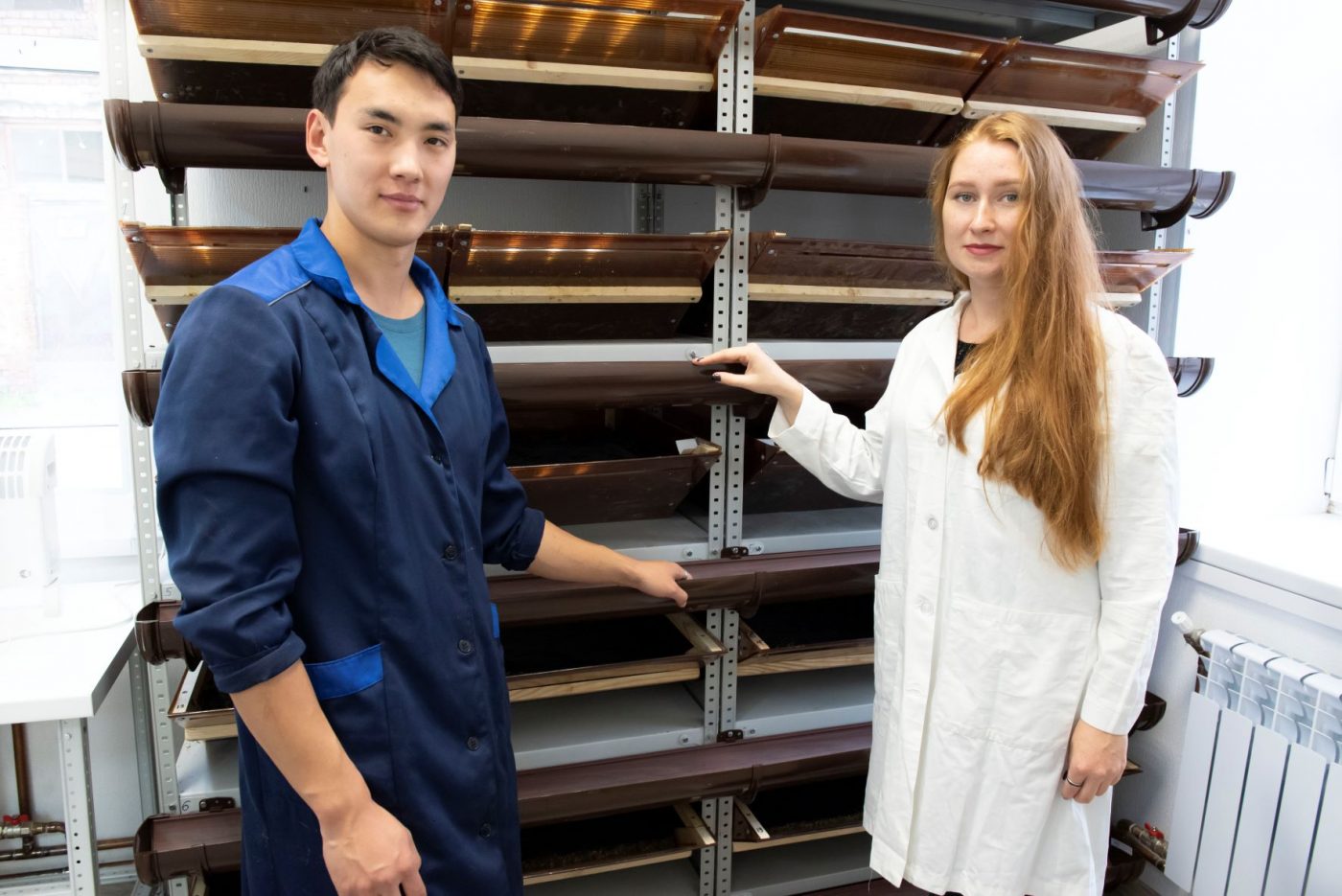It is widely known that due to human everyday activities a lot of organic waste is produced, including food waste, fruit and vegetable peel, spoilt food etc. This issue is especially urgent for restaurants, hotels and camping sites, which cumulate hundreds of kilos of such wastes. And if the problem of the solid waste can be partially solved through sorting and recycling, it is more difficult to handle this problem in case of organic waste. The organic rots very fast, becoming source of potential infections and place for various pests. For Baikal this problem stays common, because it costs a lot to organise safe and on-time waste collection from the most touristic spots, but it is just impossible to accumulate waste on the lake’s shores.
In order to solve this problem a team of the young scholars from the Irkutsk State University led by Maksim Dogbaeb set up a project, related to the creation of the model system for recycling the organic waste using industrial insects. In 2020 this idea was supported by grant competition for young scholars Baikal Initiative.
A grub of the zophobas morio and the black soldier fly help the scholars to recycle the organic wast. These insects are widely used by developed countries to combat organic wastes issue. They are able to effectively and quickly consume huge amount of organic, producing useful fertilizer – zoohumus. The team decided to examine this very ability for recycling harmful organic wastes, which are produced within the organisation.
Test system was launched to recycle all kinds of the organic wastes, which are generated by the staff: by-side products from coffee and tea preparation (coffee grouts, tea bags), snacks leftovers, fruit peels and etc, which are usually accumulated in the bins of any organisations.
The separated waste collection system was set up in the offices and labs of the institution. Special containers for organics were installed. A lot of staff even brought organics from home. The scientists collected these raw materials, then grinded it and added to the fly’s and zophobas food, which ate the leftovers very fast and recycled it into zoohumus.
Only in one month of the work of grubs several dozens of kilos of waste were destructed, reducing its volume on the 90%. For each five kilos the researchers get almost 1 kilo of the valuable fertilizer. After six-month experience the dozens of the packs with zoohumus has been gathered. These fertilizers were given to the local farmers, who specialize on producing organic food, for testing.
The insects themselves were used for receiving biopolymer from their vestiture, chitosan (promising combination, from which the bioplastics and biocompostable packaging can be produced). During the project the participants already received first samplings of mat. Now they work on improvement of resistance and elasticity of the received biomaterials.
In the future young scientists are going not only to set up the system of biowaste recycling with use of industrial grubs, but also to test the possibility to recycle the insects themselves into bioplastics and other useful materials.


